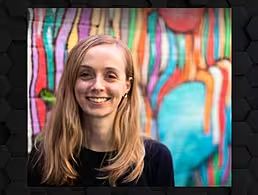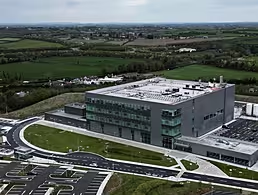Hoping to break into data science? Discover the different roles, hear from people in the industry and find out how to take your first steps.
We’ve been busy at Siliconrepublic.com this week looking at data science careers and what it’s like working in the industry. Data roles are in high demand across multiple sectors and there are plenty of opportunities to choose from at the moment.
These 24 companies are just some of the businesses that have openings for data scientists, data analysts and more right now. There are jobs in Cork, Dublin, Galway and more, across a range of industries from pharma to finance.
People with the right data skills are also playing an important during the Covid-19 pandemic, and data analysis and visualisation are becoming increasingly valuable in studies of racial injustice and police violence, according to Anaconda.
So, thinking of taking your first steps into this job market? Here’s what you need to know.
What does a data scientist do?
We learned about the ins and outs of a number of data roles this week. For a high-level overview of working in the field, from salaries to the key jobs, check out this explainer. On average, a data scientist working in Ireland earns around €50,000 each year, according to Glassdoor data.
This article by Jungwoo Ryoo, professor of information sciences and technology at Pennsylvania State University, honed in on careers in big data. Many different educational and professional backgrounds can lead you to a job in this area, he said, but a willingness to learn is key.
And in this piece, we asked a data analyst and a data scientist at Aon’s Centre for Innovation and Analytics about the key similarities and differences between their roles. They described what they do on a typical day and the skills they draw on.
As with many other professions, people working in data must have the right mix of technical and soft skills. Knowledge of coding is a key requirement for most data professionals, but that’s not all.
This article looks at three of the most important technical and non-technical skills every successful data scientist needs – coding, communication and curiosity.
We also heard from Hays’ global head of technology, James Milligan, about the top data science skills for a post-Covid world. According to Milligan, data scientists will need to evolve to “stay relevant in our changing world of work”.
Hear from people in the industry
One of the highlights of Data Science Week on Siliconrepublic.com was learning from people in the industry. For early-career jobseekers, we heard from physics graduate Cristina Prieto Angulo about her role in data analytics in EY. Data analytics graduate Karishma Chandrakumar also shared her experiences of the graduate programme at Citi with us.
We also spoke to more experienced data employees. Fidelity Investments’ Sean Curran, a senior data scientist, outlined some of the lesser-known skills needed for working in the field, such as storytelling. And Sarah Jarvis, director of applied machine learning engineering and data science at AI company Secondmind, talked about her own career path and the lessons she has learned along the way.
Elsewhere, Deirdre Linnane, a data steward at Dun & Bradstreet, explained what she does on a typical day. Her role involves data processing and interacting with clients – a combination she finds rewarding.
Finally, we compiled a list of 10 leading women in data science to shed some light on the fascinating work taking place in the field. It includes Prof Maria Fasli, who became the first UNESCO chair in analytics and data science, and Rama Akkiraju, an IBM fellow and director of the company’s AI operations team.
If these insights have you feeling inspired, use this infographic to guide your first steps into the working world of data.
Want stories like this and more direct to your inbox? Sign up for Tech Trends, Silicon Republic’s weekly digest of need-to-know tech news.




